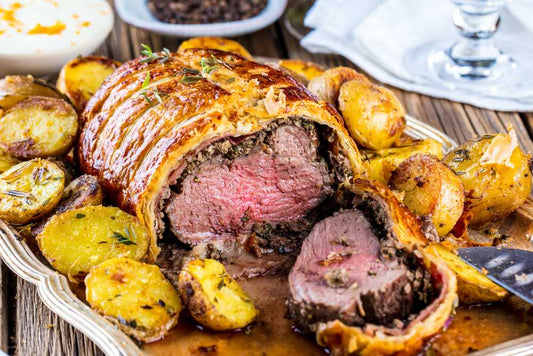Chai tea, a beloved and aromatic beverage, is enjoyed by many for its rich spices and unique flavor. Originating from India, chai tea (often just referred to as "chai") blends black tea with a medley of spices like cardamom, cinnamon, ginger, cloves, and black pepper. With its growing popularity around the world, many people wonder about its caffeine content. In this article, we'll explore whether chai tea contains caffeine, how its caffeine levels compare to other beverages, and how you can enjoy it if you're sensitive to caffeine.
Understanding Chai Tea
Chai tea is more than just a drink; it’s a cultural experience. The term "chai" simply means "tea" in Hindi, and when people refer to chai tea, they're often talking about a specific type of spiced tea. Traditional chai is made by brewing strong black tea leaves with a mixture of spices, milk, and sweetener. The result is a flavorful, warming beverage that has captivated taste buds globally.
Does Chai Tea Contain Caffeine?
Yes, chai tea does contain caffeine. The primary source of caffeine in chai tea is the black tea used as its base. Black tea is known for its higher caffeine content compared to other types of tea such as green or white tea. On average, an 8-ounce cup of black tea contains about 40-70 milligrams of caffeine, but this can vary depending on the strength of the brew and the amount of tea leaves used.
Caffeine Content in Chai Tea vs. Other Beverages
To understand how chai tea's caffeine content compares, it’s useful to consider the caffeine levels in other common beverages:
Coffee
A standard 8-ounce cup of coffee typically contains 95-120 milligrams of caffeine. This is significantly higher than the caffeine content found in chai tea. So, if you’re looking for a lower-caffeine option compared to coffee, chai tea might be a better choice.
Green Tea
An 8-ounce cup of green tea generally contains 20-45 milligrams of caffeine. Compared to chai tea, green tea usually has less caffeine. This makes green tea a suitable alternative for those who wish to minimize their caffeine intake.
Black Tea
Since chai tea is made with black tea, its caffeine content is comparable to that of a standard black tea. As mentioned earlier, this ranges from 40-70 milligrams per 8-ounce serving.
Factors Affecting Caffeine Levels in Chai Tea
Several factors can influence the caffeine content in chai tea:
Tea Strength
The strength of the chai tea affects its caffeine content. A stronger brew, made with more tea leaves or a longer steeping time, will contain higher levels of caffeine. Conversely, a milder brew will have less caffeine.
Type of Tea Leaves
Different varieties of black tea have varying amounts of caffeine. For example, Assam tea is known for its robust flavor and higher caffeine content, while Darjeeling tea is lighter and often has less caffeine. The type of black tea used in your chai can impact the final caffeine level.
Brewing Method
How you brew your chai tea can also affect its caffeine content. Traditional methods that involve simmering the tea with spices, milk, and sweetener may extract more caffeine from the tea leaves than a simple steeping process.
Decaffeinated Chai Tea Options
For those who are sensitive to caffeine or looking to reduce their intake, decaffeinated chai tea is an option. Decaffeinated chai tea is made with black tea that has had most of its caffeine removed, usually containing only a small amount of caffeine. However, the exact amount can vary by brand and preparation method.
How to Enjoy Chai Tea Without Caffeine
If you want to enjoy the flavors of chai tea without the caffeine, here are a few suggestions:
Herbal Chai Blends
Look for herbal chai blends that use herbal teas instead of black tea as their base. These blends often incorporate the same spices found in traditional chai but are naturally caffeine-free.
Chai Concentrates
Some chai concentrates or syrups are available in decaffeinated versions. These can be a convenient option if you want to make chai tea at home without the caffeine.
Custom Blends
You can also create your own caffeine-free chai blend using herbal tea bags or loose herbs and spices. Experiment with different combinations to find a flavor profile that suits your taste.
Health Considerations
While chai tea does contain caffeine, moderate consumption is generally considered safe for most people. However, if you have specific health concerns or are sensitive to caffeine, it’s important to monitor your intake. Excessive caffeine consumption can lead to issues such as insomnia, jitteriness, and increased heart rate.
Pregnancy and Caffeine
Pregnant individuals are often advised to limit their caffeine intake. If you’re pregnant, consult with your healthcare provider about how much caffeine is safe for you and consider choosing decaffeinated or caffeine-free chai options.
Caffeine Sensitivity
People with caffeine sensitivity may experience negative effects even with small amounts of caffeine. If you find that caffeine affects you strongly, opt for decaffeinated chai or herbal alternatives.
Conclusion
Chai tea is a flavorful and aromatic beverage that contains caffeine primarily due to its black tea base. The caffeine content in chai tea is generally lower than that found in coffee but higher than in green tea. If you’re looking to reduce your caffeine intake, decaffeinated chai tea and herbal chai blends offer excellent alternatives. Whether you enjoy chai tea for its rich spice blend or as a lower-caffeine alternative to coffee, it remains a delightful choice for many tea enthusiasts.
As with any caffeinated beverage, moderation is key. Enjoy your chai tea responsibly and savor the warmth and comfort it brings to your daily routine.


